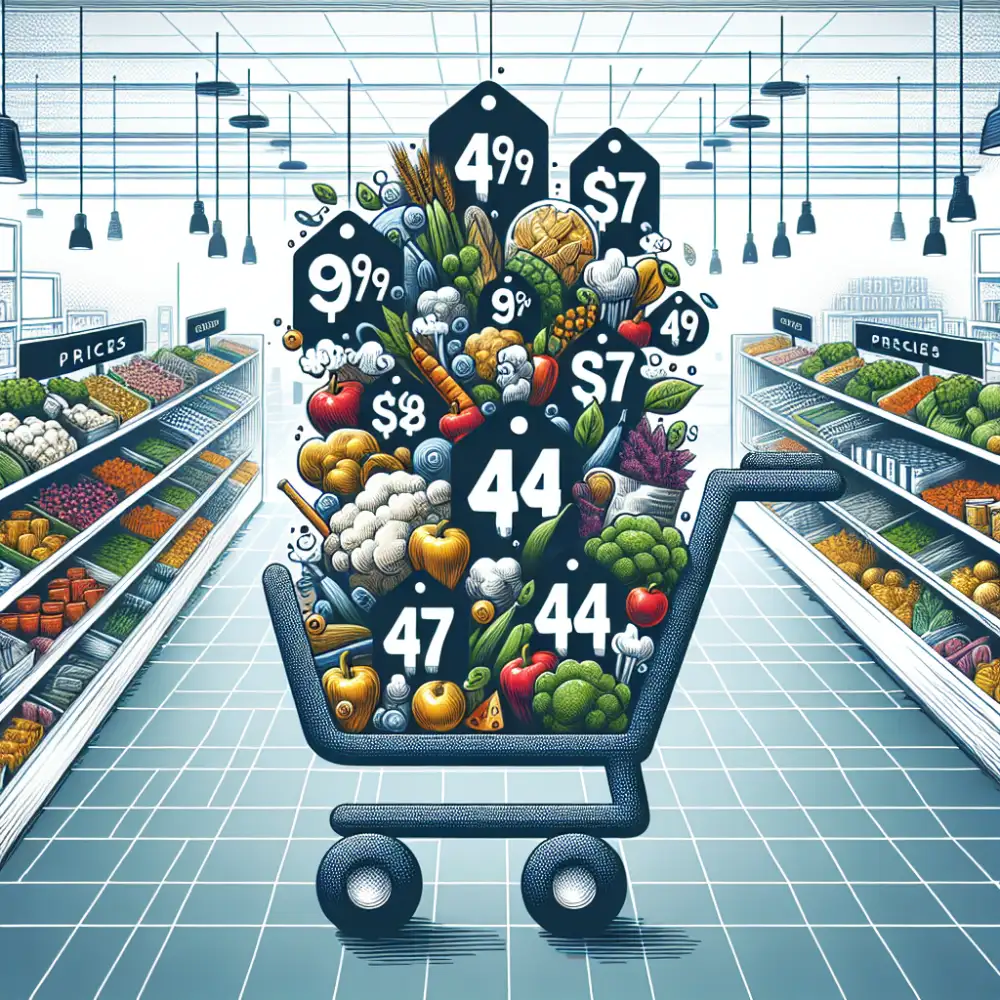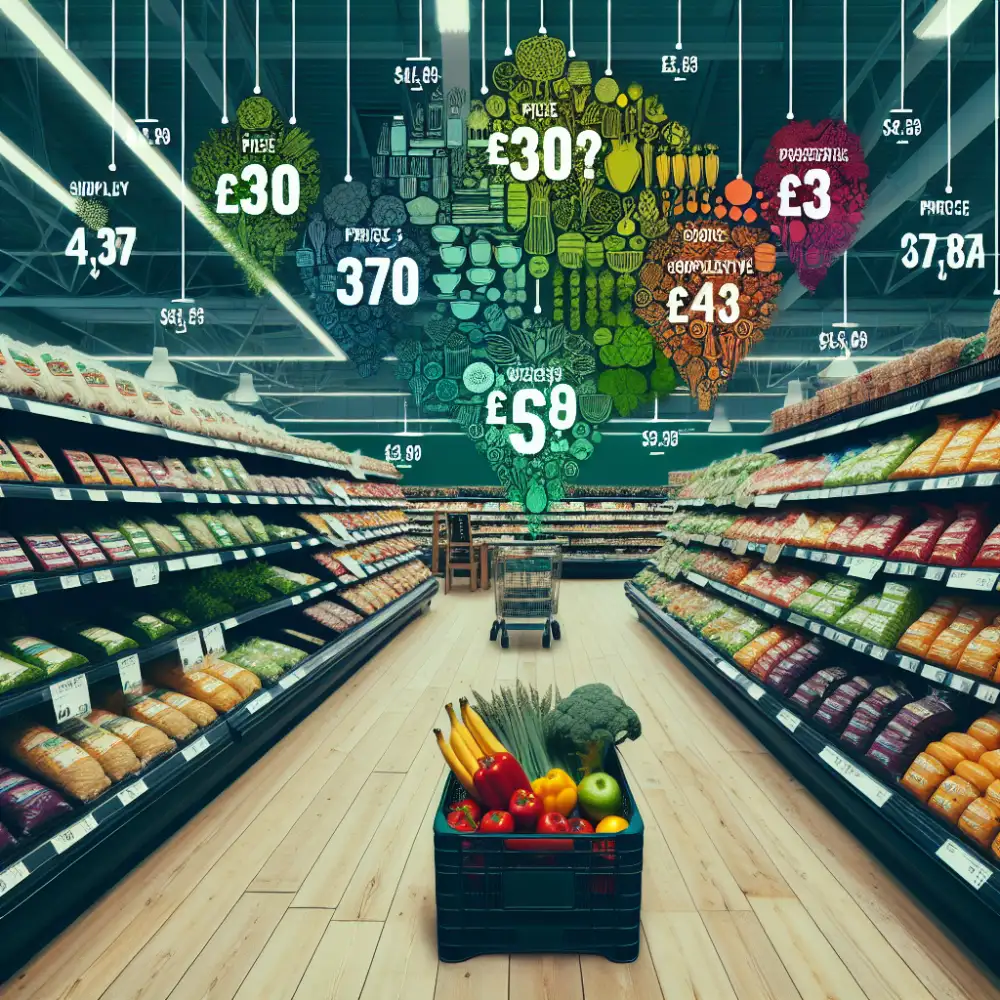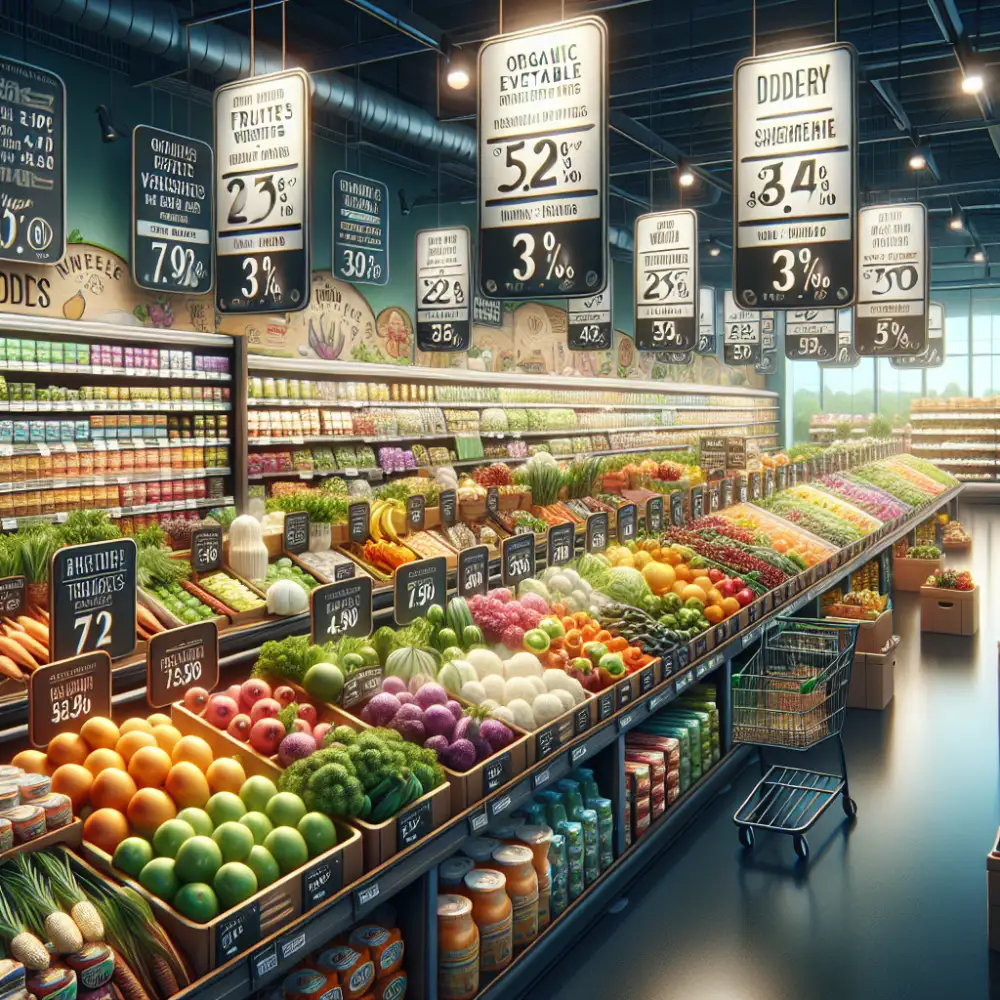Is Whole Foods Really That Expensive?

Whole Foods Prices: High or Hype?
Whole Foods has earned a reputation for being pricey, often jokingly referred to as "Whole Paycheck." But is this reputation truly deserved, or is it more hype than reality? The answer, as with most things, is a bit nuanced.
Yes, Whole Foods can be more expensive than conventional supermarkets, especially for staple items like milk, eggs, and some produce. This higher pricing stems from several factors. Whole Foods prioritizes organic and non-GMO products, which often come with higher production costs. They also focus on sourcing from local and sustainable farms, which can contribute to higher prices. Additionally, Whole Foods stores generally feature a wider selection of specialty and gourmet items, which tend to be pricier by nature.
However, it's not entirely accurate to label Whole Foods as universally expensive. Savvy shoppers can find deals and save money by employing a few strategies. Whole Foods' own private label brand, 365 by Whole Foods Market, offers a wide range of products at more affordable price points, often comparable to or even cheaper than similar name-brand items at other supermarkets. Additionally, taking advantage of weekly sales and utilizing the Whole Foods app for digital coupons can lead to significant savings.
Furthermore, directly comparing prices between Whole Foods and conventional supermarkets might not always paint the full picture. Whole Foods often carries products not found elsewhere, such as unique varieties of produce, specialty cheeses, or artisanal breads. These items might come with a higher price tag, but they also offer a level of quality and exclusivity that some shoppers are willing to pay for.
Ultimately, whether Whole Foods is "expensive" depends on individual shopping habits, priorities, and budget. If you prioritize organic and sustainably sourced products and are willing to be strategic with your shopping, you can find value at Whole Foods. However, if you're primarily focused on finding the absolute lowest prices on basic groceries, other supermarkets might be a better fit.
| Product | Whole Foods ($) | Other Supermarkets ($) |
|---|---|---|
| Organic Banana (per lb) | $0.79 | $0.49 |
| Gallon of 2% Milk | $3.99 | $2.79 |
| 12 oz. Bag of Coffee (Ground) | $12.99 | $8.99 |
For many, the experience of shopping at Whole Foods Market evokes a sense of aspiration mixed with a touch of sticker shock. The gleaming produce, the artisan cheeses, the promise of "the highest quality natural and organic foods" – it all comes with a price tag that has earned the affectionate nickname "Whole Paycheck." But is the organic premium at Whole Foods truly worth the cost?

Let's break it down. It's no secret that Whole Foods generally prices its products higher than conventional supermarkets. A 2019 study by Business Insider found that, on average, Whole Foods prices were 19% higher than Walmart's and 13% higher than Kroger's. This price difference is often attributed to the higher cost of sourcing and producing organic and natural foods. Organic farming, for instance, often involves more labor-intensive practices and stricter regulations, leading to higher production costs. Additionally, Whole Foods emphasizes sourcing from local and smaller-scale producers, which can also contribute to higher prices.
However, the price gap isn't always as wide as it seems. Whole Foods has made efforts in recent years to make its offerings more accessible. The introduction of its 365 by Whole Foods Market brand, with its focus on value-priced staples, has provided a more budget-friendly option. Additionally, Whole Foods' robust sales and loyalty programs can offer significant savings for frequent shoppers.
Ultimately, the decision of whether the organic premium at Whole Foods is worth it comes down to individual priorities and budget constraints. If having access to the widest selection of organic and specialty products, regardless of price, is a top priority, then Whole Foods might be the right fit. However, if you're budget-conscious but still value quality and sustainability, strategic shopping at Whole Foods, utilizing sales and considering their 365 brand, can be a way to make it work. Remember, there's no one-size-fits-all answer, and the best approach is to weigh your values, needs, and budget to make the best choice for you.
Value-Seeking at WF: Tips & Tricks
Whole Foods Market, often dubbed "Whole Paycheck," has a reputation for being pricey. While some items may cost more than your average supermarket, there are ways to navigate the aisles and your budget without breaking the bank. Here are some tried-and-true tips and tricks for value-seeking shoppers:
- Embrace the Sales: Whole Foods runs weekly sales, just like any other grocery store. Check their website or app for the latest deals and plan your shopping list accordingly. Look for the yellow sale signs throughout the store to spot discounted items.
- 365 Everyday Value: This is Whole Foods' own brand, and it consistently offers lower prices on a wide range of products, from pantry staples to frozen foods and snacks. You'll often find the quality comparable to name brands but at a fraction of the cost.
- Bulk Bins are Your Friend: Whether you need grains, nuts, seeds, or dried fruit, the bulk bins are a goldmine for savings. You can buy exactly the quantity you need, reducing waste and often paying less per ounce than pre-packaged options.
- Explore the Produce Section: While some specialty produce can be expensive, Whole Foods offers plenty of affordable fruits and vegetables. Look for what's in season locally for the best prices and consider buying frozen produce for longer shelf life and less waste.
- Meatless Mondays (and More): Plant-based proteins like beans, lentils, tofu, and tempeh are budget-friendly alternatives to meat. Whole Foods has an excellent selection of these items, along with delicious pre-made vegetarian and vegan options in their prepared foods section.
- BYOB (Bring Your Own Bags): Whole Foods encourages sustainability and rewards you for it. Bring your own reusable bags and you'll receive a discount on your purchase.
- Rewards Program Perks: Sign up for Whole Foods' rewards program to earn points on your purchases, access exclusive discounts, and receive personalized offers.
- Shop the Day After: While not always guaranteed, shopping the day after a holiday can yield significant discounts on seasonal items, baked goods, and more.
- Don't Be Afraid to Ask: If you're looking for a specific product or have questions about pricing, don't hesitate to ask a Whole Foods team member. They are generally knowledgeable and happy to help.
Remember, shopping at Whole Foods doesn't have to mean emptying your wallet. By being a strategic shopper and taking advantage of these tips, you can enjoy the quality and selection that Whole Foods offers without sacrificing your budget.

Budget-Friendly WF Alternatives
Whole Foods has earned a reputation for being pricey, often jokingly referred to as "Whole Paycheck." While they offer high-quality, often organic products, there are plenty of alternative supermarkets where you can find similar items without breaking the bank.
Trader Joe's is a popular choice known for its unique and affordable private-label products. They have a smaller selection than Whole Foods, but you can find great deals on everything from produce and pantry staples to frozen meals and snacks.
Aldi is another discount grocery chain that keeps prices low by offering a limited selection of mostly private-label goods. They also cut costs by requiring customers to bag their own groceries and using a cart deposit system.
Lidl, a German discount supermarket chain, has been expanding rapidly in the US. Like Aldi, they focus on private-label products and offer competitive prices on a wide range of groceries.
Target and Walmart may not be the first places that come to mind for groceries, but both have significantly expanded their grocery sections in recent years. They offer a good selection of name-brand and store-brand products at competitive prices.

Regional grocery chains can also be a great option. Many regional chains are known for their fresh produce and competitive pricing. Do some research to see what's available in your area.
Farmers' markets are a fantastic way to find fresh, local produce often at lower prices than supermarkets. Plus, you're supporting local farmers and businesses.
Remember, you can also shop strategically at Whole Foods to save money. Look for sales and take advantage of their Amazon Prime member discounts. Their "365" brand also offers more affordable options.
Published: 25. 06. 2024
Category: Food



